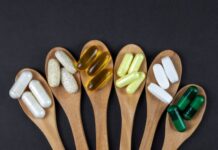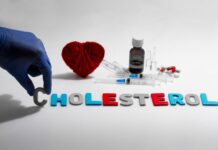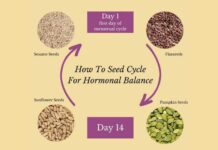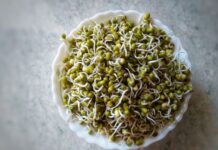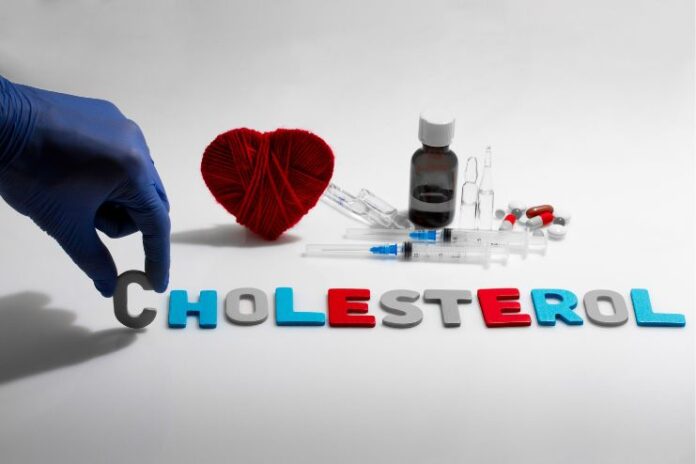Not all cholesterol is harmful—HDL protects your heart, so it’s good to have higher levels of it. HDL (high-density lipoprotein) cholesterol assists in clearing out excess LDL (low-density lipoprotein), the “bad” cholesterol, from your blood, reducing your risk of heart disease and a stroke.
While LDL leads to blocked arteries, HDL acts like a cleanup team, cleaning away the debris and promoting heart health. The silver lining is that you do not always have to take medicine to raise your HDL levels.
By making some easy changes to your lifestyle, you can naturally enhance your cholesterol profile and safeguard your heart. In this guide, you’ll learn 10 evidence-based, easy-to-implement ways to raise your HDL levels.
From incorporating healthy fats into your diet and staying active to giving up cigarettes and losing weight, these recommendations are effective, practical, and proven to succeed.
So, whether you’re trying to improve heart health or overall well-being, these natural approaches can help raise good cholesterol.
Read More: 18 Healthy Fats to Eat
10 Proven Ways to Boost HDL Naturally
Wondering how to raise HDL cholesterol naturally? The secret is in simple, everyday choices. Healthy eating and regular exercise can easily raise your good cholesterol levels and give your overall heart health a boost.
1. Exercise Regularly
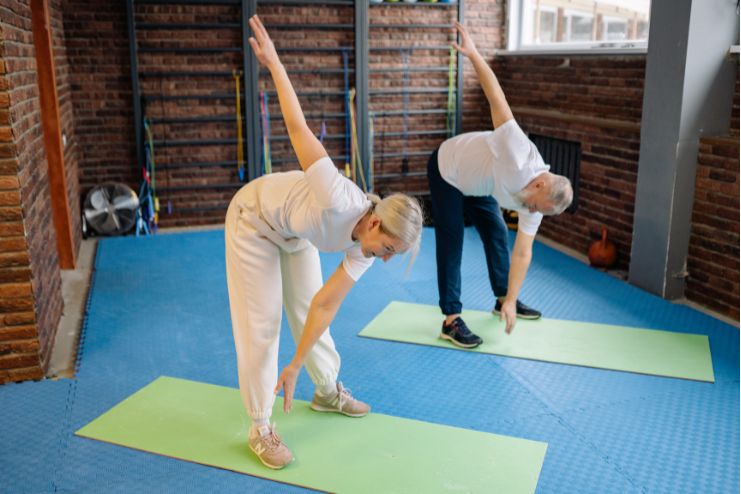
Here are some healthy routines that not only increase HDL but also reduce your risk of heart disease, diabetes, and other chronic diseases, making you healthier and more energetic.
Moderate to Vigorous Cardio (E.G., Brisk Walking, Swimming, Cycling)
Regular cardio exercise is one of the best natural ways to increase HDL cholesterol. Cardio exercises such as jogging, swimming, cycling, or brisk walking increase heart rate and improve blood circulation.
Exercise to improve cholesterol also stimulates your body to raise HDL while lowering LDL, the bad type of cholesterol. Even five brisk walks a week for 30 minutes can improve your HDL levels over a period of time.
Strength Training Also Helps
Incorporating strength training into your program is another great idea. Lifting weights, push-ups, or resistance bands increases muscle mass, increases metabolism, and enhances fat-burning, all of which contribute to improving cholesterol levels.
According to research, combining aerobic activity with strength training is more beneficial in increasing HDL than performing either form of exercise alone. Therefore, don’t overlook weight if you want your heart to be healthier.
Aim: 30–60 Mins Most Days of the Week
To get lasting results, do 30 to 60 minutes of exercise on most days. You can split this into shorter durations, if needed. Consistency is important.
As long as you have a heart-healthy diet that includes good fats for your heart, such as nuts, seeds, olive oil, and fatty fish, the efforts will pay off.
2. Choose Healthy Fats (Especially Monounsaturated)
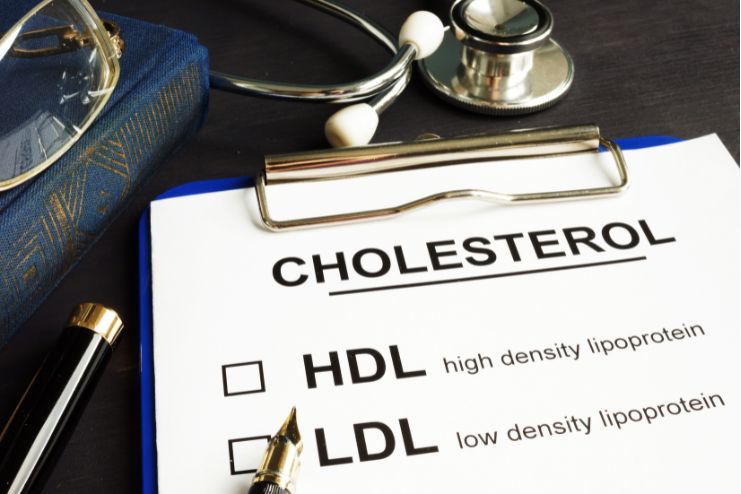
If you’re concerned about how to increase HDL cholesterol naturally, healthy fat intake can be of immense help.
Not all fats are bad, some are also good for the heart. The trick lies in avoiding injurious fats and adopting heart-healthy fats, particularly monounsaturated fats.
Include Olive Oil, Avocados, Almonds, and Peanuts
Monounsaturated fats have proven to contribute to better cholesterol levels. These healthy fats can be found in foods such as extra virgin olive oil, avocados, almonds, and peanuts.
They are not only delicious but also help the body raise HDL (the good stuff) and decrease LDL (the bad stuff). These are among the best foods to raise HDL, and incorporating them into your meals is a simple step towards a more cholesterol-friendly lifestyle.
Replace Saturated Fats with Heart-Healthy Fats
Saturated fats, present in butter, red meat, full-fat dairy, and packaged foods, might increase LDL and increase the risk to your heart. Attempt substitution with healthier counterparts.
For instance, substitute olive oil for butter, or settle for grilled fish instead of fried meat. That change reduces the bad cholesterol, while your body is prompted to raise HDL, leading to improved heart health and nutrition.
Helps Increase HDL while Lowering LDL
If you regularly eat foods with heart-healthy fats, your cholesterol picture may improve. Monounsaturated fats remove bad cholesterol from your arteries and increase good cholesterol levels, which defend your heart.
Such small dietary changes, coupled with regular exercise for bettering cholesterol, can yield long-term benefits for the heart. By being selective about your fat intake, you’re not only eating smart but also supporting your heart health.
3. Eat More Omega-3 Fatty Acids

Increasing omega-3 fatty acids in your diet is one of the best ways to boost good cholesterol. These healthy fats protect the heart by increasing HDL and lowering inflammation.
If you’re trying to naturally improve your cholesterol levels, omega-3s are a smart and easy addition to your regimen.
Found in Fatty Fish (Salmon, Mackerel, Sardines)
Fatty fish such as mackerel, sardines, salmon, trout, and herring are among the greatest foods to enhance HDL. They are abundant with EPA and DHA, two strong forms of omega-3s, which not only improve good cholesterol but also decrease triglycerides.
Including these fish in your diet at least twice a week supports a cholesterol-friendly lifestyle and lowers your risk of heart disease.
Also in Chia Seeds, Flaxseeds, and Walnuts
Not a fan of fish? You can still benefit from omega-3s through plant-based sources. Chia seeds, flaxseeds, and walnuts contain ALA (alpha-linolenic acid), another form of omega-3 that supports heart health.
These foods are also fiber-rich foods for cholesterol, making them doubly effective at improving your lipid profile. Add chia or flaxseeds to smoothies, oatmeal, or salads, and snack on walnuts for a tasty, heart-smart boost.
Omega-3s May Raise HDL and Reduce Inflammation
Using omega-3 for cholesterol management is backed by research. Omega-3s help increase HDL levels and improve how well they work in removing bad cholesterol (LDL) from the blood.
They also help calm inflammation, which plays a major role in heart disease. Making omega-3-rich foods part of your daily meals is an easy and impactful way to improve your heart health while enjoying delicious, wholesome foods.
4. Lose Excess Weight (If Overweight)
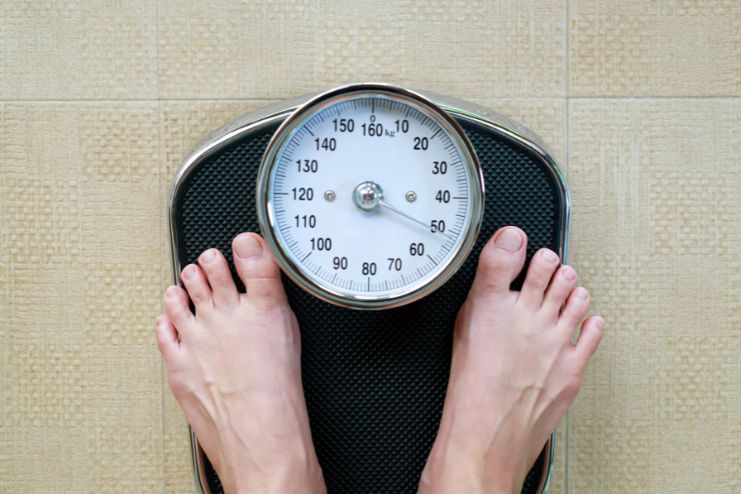
Shedding excess weight, particularly around the middle, is one of the most potent methods to raise good cholesterol and increase HDL without medication.
Any degree of weight loss, even a little bit, can significantly enhance your cholesterol levels and heart health.
Even a 5–10% Weight Loss Can Significantly Increase HDL
You don’t need to lose a great deal of weight to notice benefits. Studies indicate that losing 5 to 10% of your body weight increases HDL (good cholesterol) and enhances the way your body processes fats.
This is good news if you want to get better numbers without medicine. It’s easy but a strong step in the direction of a healthier, more cholesterol-friendly way of living.
Belly Fat Especially Linked to Lower HDL Levels
All fat isn’t created equal. Belly fat—or visceral fat—is strongly associated with lower levels of HDL and increased LDL (bad cholesterol). That’s why addressing belly fat through lifestyle changes can increase HDL and lower the risk of heart disease.
The relationship between cholesterol and weight loss is obvious: the more you shed unhealthy fat, the more you benefit your heart.
Pair Diet + Movement for Sustainable Results
For sustained success, pair a healthy diet with consistent physical exercise. Prioritize a heart-healthy diet by adding fiber-rich foods for cholesterol, healthy fats, fruits, vegetables, and lean proteins.
Pair with consistent exercise to enhance cholesterol, like brisk walking, cycling, or resistance exercises. This dual healthy combination promotes sustainable weight loss and with time naturally raises HDL levels.
With a regular routine, you won’t just lose weight, overall you will start feeling a lot better.
5. Cut Out Trans Fats Completely

If you’re serious about improving your heart health and looking for ways to increase HDL without medication, cutting out trans fats is essential.
These harmful fats don’t just raise bad cholesterol; they also lower the good kind, making them one of the worst culprits in your diet.
Found in Processed Foods
Trans fats are commonly found in packaged snacks, commercial baked goods, margarine, microwave popcorn, and fried fast food.
These foods might taste good, but they’re harmful to your heart. One of the simplest HDL cholesterol diet tips is to avoid these items and replace them with whole, fresh foods instead.
Trans Fats Lower HDL and Raise LDL—A Double Negative
Understanding HDL vs LDL explained is important in learning why trans fats are so deadly. LDL (low-density lipoprotein) is the “bad” cholesterol that accumulates in your arteries, and HDL (high-density lipoprotein) is the “good” cholesterol that removes LDL from your body.
Trans fats raise LDL and lower HDL, putting your heart at serious risk. This double impact makes eliminating trans fats a top priority for anyone looking to improve cholesterol naturally.
Always Check Labels for “Partially Hydrogenated Oils”
Even if a product claims “0 grams trans fat,” it may still contain trace amounts if it has “partially hydrogenated oils” listed in the ingredients. That’s the industry’s code for trans fat.
One of the best HDL cholesterol diet tips is to read labels carefully and opt for foods with natural, healthy fats, like olive oil or those rich in omega-3, for cholesterol support.
6. Quit Smoking (Or Don’t Start)
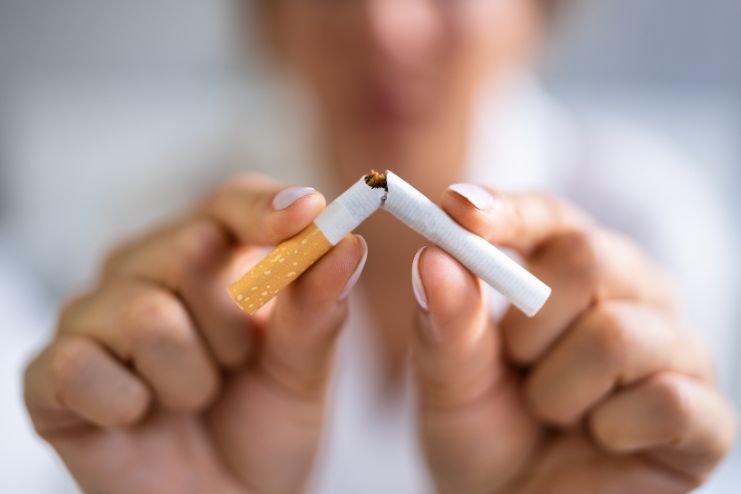
Good habits raise good cholesterol; giving up smoking is the most effective way to do that. Smoking isn’t only harmful for your lungs; it also targets your cholesterol count and heart health directly.
Quitting Smoking Can Raise HDL Within Weeks to Months
The connection between quitting smoking and HDL is evident. If you quit smoking, your HDL (good cholesterol) levels may begin to rise within a few weeks.
They can get even better over time, which is good news for your heart. HDL operates by assisting in the removal of LDL (bad cholesterol) from your blood, keeping your arteries free.
Also Reduces Inflammation and Improves Blood Vessel Function
Smoking tends to irritate your blood vessels and harm their lining, so it is more likely for cholesterol to stick and form blockages.
As you stop smoking, your blood vessels heal, and inflammation subsides. This improves circulation and reduces your risk of a heart attack.
If Needed, Explore Nicotine Replacement or Behavioral Therapy
It’s hard to quit, but there are many helpful tools. Nicotine replacement products such as patches, gums, or lozenges can ease withdrawal symptoms.
Counseling or support groups may also improve your success rate. Consult a medical professional to determine the proper support plan for you.
Stopping smoking isn’t about ending a habit—it’s about letting your HDL get to work and guarding your heart for the future.
7. Drink Alcohol in Moderation (If at All)

Moderation is essential for heart health when it comes to alcohol. While drinking too much can be harmful, light to moderate alcohol consumption may offer some benefits, especially when it comes to your HDL levels.
If you’re exploring ways to boost good cholesterol, responsible drinking might play a small role.
Moderate Intake May Increase HDL
Research indicates that drinking alcohol in moderation can raise levels of HDL (good) cholesterol. That is, alcohol, in small quantities, can assist in the improved transport of cholesterol in the blood.
Women are advised to have up to one drink daily, and men up to two. It can be included in a healthy way of living, but it is not a method that is effective or safe to use for everybody.
Red Wine May Support Heart Health
Red wine, however, has been the focus due to its content of polyphenols such as resveratrol. These plant compounds could help guard the lining of blood vessels and support cardiac function in general.
Red wine may slightly protect the heart, but it should not be your sole strategy. It’s even more effective when paired with HDL-boosting nutrition tips, high-fiber cholesterol-lowering foods, and regular exercise.
Caution: Excessive Alcohol Reverses Benefits
Just remember that the more you drink does not equate to greater health benefits. Quite the contrary: heavy or binge drinking increases blood pressure, can harm the liver, and increases LDL (bad) cholesterol, negating any beneficial effect on HDL.
So, unless you already consume alcohol, do not begin to do so. And if you do drink, limit your consumption to moderate levels and concentrate on overall heart-healthy nutrition and healthy lifestyle practices that are documented to contribute to your health.
8. Eat More Soluble Fiber
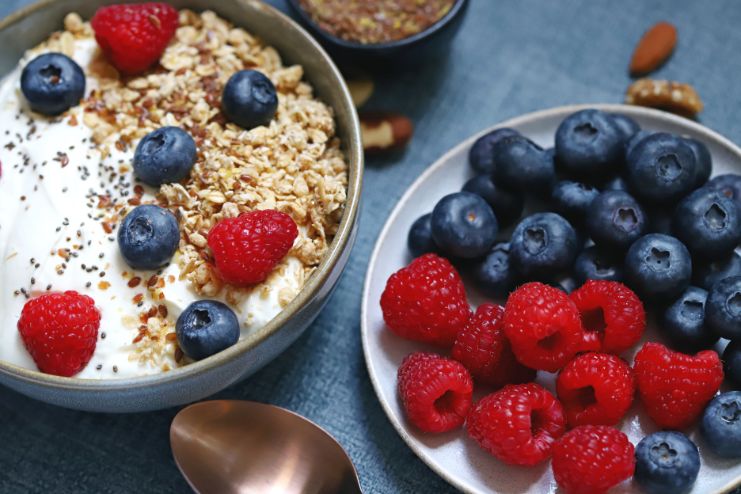
One of the most powerful and enduring natural remedies for low HDL is simply boosting your intake of soluble fiber. This simple dietary change not only reduces bad cholesterol (LDL) but also promotes a healthier ratio of LDL to HDL, critical to long-term heart protection.
Found in Oats, Beans, Lentils, Apples, and Berries
Soluble fiber is found in everyday foods such as oats, beans, lentils, apples, oranges, carrots, berries, and barley. When consumed, this fiber dissolves in water and creates a gel-like texture in your digestive system.
It captures cholesterol and enables your body to get rid of it, reducing LDL levels. These foods rich in fiber for cholesterol are simple to incorporate into your snacks and meals.
Helps Reduce LDL and Indirectly Improves HDL Ratio
Soluble fiber does not increase HDL (good cholesterol) directly, it reduces LDL (bad cholesterol) levels heavily. This benefits the overall lipid profile and maximizes the beneficial effect of HDL.
For those wanting to learn about HDL vs LDL, it should be mentioned that maximizing the ratio of the two is as beneficial as maximizing HDL alone.
Supports Overall Metabolic Health
Besides cholesterol control, soluble fiber also controls blood sugar levels, aids digestion, and induces a sense of fullness, which helps in weight control.
Because weight loss can enhance HDL, that is a win-win. Increasing the fiber content in your diet is a healthy, long-term approach and the best choice among HDL cholesterol diet recommendations.
Adding soluble fiber to your diet is one of the simplest, most natural, and most efficient ways to increase good cholesterol. Combine it with exercise to enhance cholesterol and heart health, to build a stronger, healthier heart without the use of medication.
9. Consider Intermittent Fasting
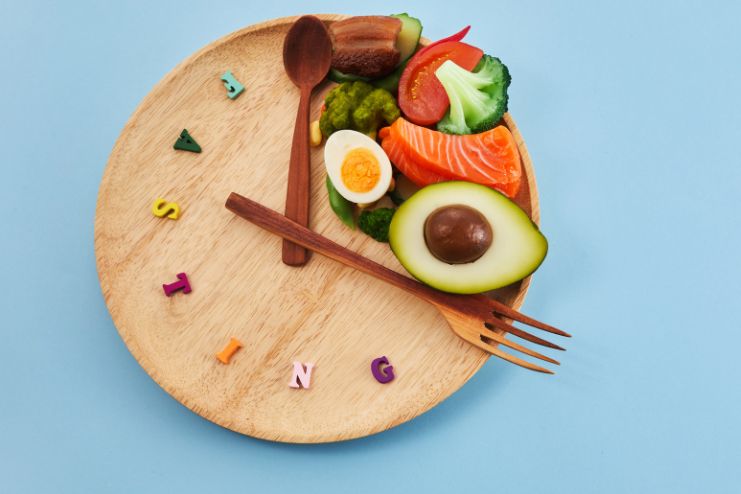
Intermittent fasting (IF) is gaining attention not just for weight management but also for heart health. Some research suggests that IF may be one of the helpful natural remedies for low HDL, especially when combined with a balanced diet and regular exercise.
Fasting May Improve HDL and Insulin Sensitivity
Studies show that intermittent fasting can lead to better cholesterol levels by lowering LDL and possibly improving HDL (good cholesterol).
It also helps the body use insulin more effectively, reducing the risk of type 2 diabetes and heart disease. This makes IF a valuable tool in a cholesterol-friendly lifestyle, particularly for those looking for drug-free ways to support their health.
Gentle Fasting Routines are a Safe Starting Point
Popular IF patterns include the 16:8 method (fast for 16 hours, eat within an 8-hour window) or the 12:12 approach (12 hours fasting, 12 hours eating). These routines are easier to follow and may still offer heart benefits without extreme restriction.
If you’re considering intermittent fasting as one of your HDL cholesterol diet tips, it’s important to listen to your body and consult a healthcare provider, especially if you have existing health conditions.
Supports Weight Management and Heart Health
IF can help with weight loss or maintenance by limiting late-night snacking and mindless eating. Since carrying excess weight, especially around the belly, can lower HDL levels, losing even a small amount of weight through fasting and heart-healthy nutrition can have a big impact.
When done mindfully, intermittent fasting may be a helpful addition to other proven strategies like exercise to improve cholesterol, eating fiber-rich foods for cholesterol, and boosting your intake of good fats for the heart.
10. Manage Stress and Sleep

When it comes to natural cures for low HDL, taking care of your stress levels and sleeping soundly are equally crucial as exercising and dieting.
Stress and inadequate sleep don’t merely take a toll on your mood, they also harm your heart health and your cholesterol levels.
Stress Can Lower HDL and Raise Triglycerides
Chronic stress makes your body release hormones such as cortisol, which can reduce your HDL (good) cholesterol and increase triglycerides (a form of blood fat). This heightens your risk of heart issues over time.
Adding stress-relieving activities into your daily regimen, such as deep breathing, yoga, or meditation, will soothe your mind and assist in more optimal cholesterol balance. Even relaxing activities, such as a quiet walk or reading, can do the trick.
Better Sleep Supports Better Cholesterol
Poor sleep or sleep deprivation may result in elevated LDL (bad cholesterol), decreased HDL, and increased blood pressure. For a healthy heart lifestyle, try to get quality sleep of 7–9 hours each night.
Good sleep allows your body to recover, deal with stress better, and control essential hormones responsible for cholesterol and fat metabolism.
Daily Calm Improves Long-Term Heart Health
Stress management and sleep enhancement are habits that pay off in the long run for an overall healthier lifestyle.
Along with HDL cholesterol diet suggestions, exercise to increase cholesterol, and fiber and cholesterol foods, an emphasis on mental and emotional well-being completes a full cholesterol-conducive lifestyle. It’s not only what you eat and how active you are, but also how well you recharge your body enables the effective increase of good cholestrole.
Read More: Stay Away from These Foods High in Unsaturated Fats
When to See a Doctor

Developing healthy lifestyle changes is an excellent means of enhancing your heart health and increasing HDL (good cholesterol). At times, however, expert medical help is required, particularly when your readings still fall outside of the healthy spectrum even with proper lifestyle changes.
Low HDL May Signal Higher Heart Risk
If your HDL cholesterol consistently reads below 40 mg/dL in men or 50 mg/dL in women, it might increase your risk of heart disease and stroke. HDL is responsible for getting rid of extra LDL (bad cholesterol) in the blood.
When HDL levels are insufficient, your body can have difficulty clearing your arteries, increasing your cardiovascular risk.
Regular Blood Tests Help Monitor Your Levels
Your physician can suggest a complete lipid profile, which includes total cholesterol, LDL, HDL, and triglycerides. These create a clear picture of the health of your heart. Even if you’re not aware of any concerns, these figures are necessary to catch things early on.
If you’re experimenting with natural methods for low HDL and not experiencing any positive effects, a physician can provide some evaluation on what’s working and what isn’t.
Consult a Doctor Before Changing Your Diet
Before taking new supplements such as fish oil or niacin, or making significant changes in your eating habits such as intermittent fasting, consult your healthcare provider. Certain products may interact with drugs or not be appropriate based on your general health.
Even with the best HDL-boosting diet, fiber-rich foods, and regular exercise, consulting a healthcare professional ensures you’re on the safest and most effective path to managing your cholesterol.
Take help on time because your heart is worth it.
Read More: Fruits that Help in Weight Loss
Final Thoughts

Increasing your HDL, or “good” cholesterol, is not a game of chasing fads; it’s about creating consistent, heart-healthy habits that help your body over the long run. These 10 lifestyle changes do more than just raise your HDL. They make your heart stronger, boost your energy, and reduce your risk of chronic disease.
Regardless of whether you’re pursuing natural treatments for low HDL or just aiming for a more cholesterol-conscious lifestyle, the most important thing is to be consistent.
Small changes, such as consuming more foods that are high in omega-3s or taking a daily walk, can bring actual improvements over time. And don’t forget, always speak with your doctor before you begin any supplements or big lifestyle changes.
The last lesson is “When you care for your body naturally, your numbers often follow.”
References
- https://www.webmd.com/heart/how-to-boost-your-good-cholesterol
- https://www.health.harvard.edu/heart-health/ask-the-doctor-can-HDL-cholesterol-be-too-high
- https://www.hopkinsmedicine.org/health/wellness-and-prevention/3-kinds-of-exercise-that-boost-heart-health
- https://www.heart.org/en/health-topics/cholesterol/prevention-and-treatment-of-high-cholesterol-hyperlipidemia/the-skinny-on-fats
- https://medlineplus.gov/hdlthegoodcholesterol.html
- https://www.thehealthsite.com/diseases-conditions/high-cholesterol-diet-hack-7-heart-healthy-fats-to-flush-out-bad-ldl-cholesterol-1133393/
- https://www.medicalnewstoday.com/articles/318598
- https://my.clevelandclinic.org/health/articles/17290-omega-3-fatty-acids
- https://pmc.ncbi.nlm.nih.gov/articles/PMC8905646/
- https://www.verywellhealth.com/foods-that-raise-hdl-697838
- https://artemiscardiac.com/blog/how-to-increase-good-cholesterol-tips-to-improve-hdl-cholesterol
- https://medlineplus.gov/ency/patientinstructions/000786.htm
- https://www.heart.org/en/healthy-living/healthy-eating/eat-smart/fats/trans-fat
- https://www.webmd.com/cholesterol-management/features/11-tips-to-cut-your-cholesterol-fast
- https://www.goodrx.com/conditions/high-cholesterol/does-smoking-cause-high-cholesterol
- https://pmc.ncbi.nlm.nih.gov/articles/PMC3576744/
- https://www.webmd.com/cholesterol-management/cholesterol-and-alcohol
- https://pubmed.ncbi.nlm.nih.gov/11067787/
- https://www.mayoclinic.org/healthy-lifestyle/nutrition-and-healthy-eating/in-depth/fiber/art-20043983
- https://www.lipid.org/sites/default/files/adding_soluble_fiber_final_0.pdf
- https://www.medicalnewstoday.com/articles/318598
- https://www.mayoclinic.org/diseases-conditions/heart-disease/expert-answers/fasting-diet/faq-20058334
- https://www.webmd.com/cholesterol-management/how-sleep-affects-cholesterol
- https://www.medicalnewstoday.com/articles/319275
In this Article

